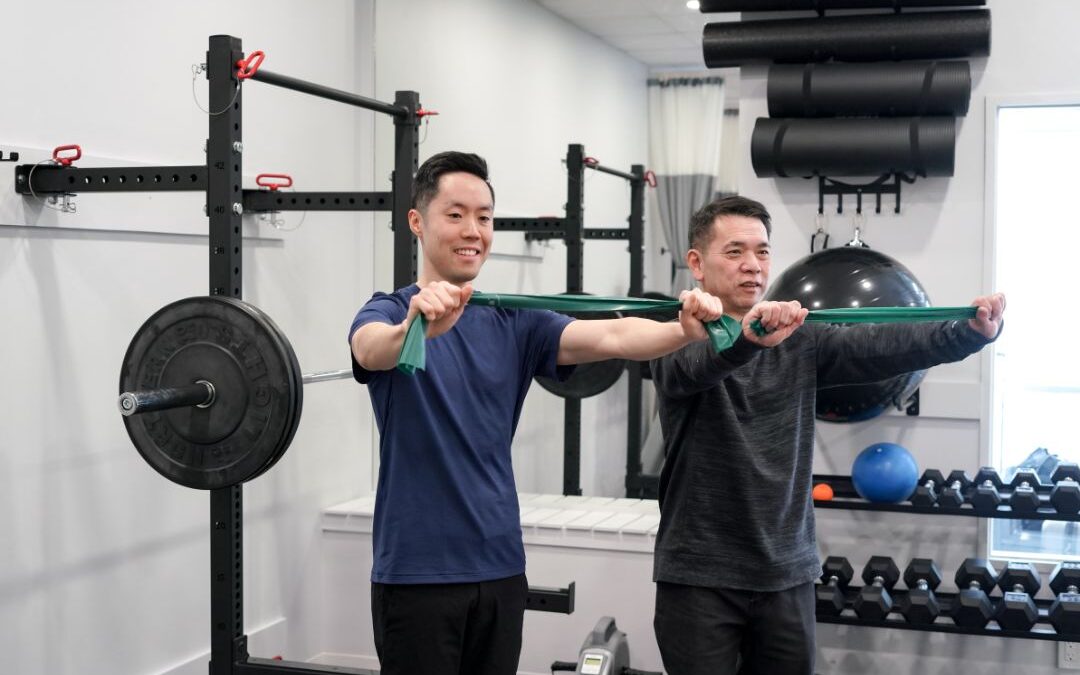Treatments:
Rotator cuff injuries are a common source of shoulder pain and dysfunction, affecting individuals of all ages and activity levels. Whether caused by repetitive motions, trauma, or degenerative changes, these injuries can significantly impact daily life and mobility. In this blog post, we’ll explore the symptoms, causes, and how physiotherapy can help in recovering from rotator cuff injuries.
Symptoms of Rotator Cuff Injuries:
- Shoulder Pain: Persistent pain in the shoulder, especially when lifting the arm or during specific movements.
- Weakness: Difficulty in performing tasks that involve overhead movements, such as reaching or lifting.
- Limited Range of Motion: Reduced ability to move the shoulder through its full range, accompanied by stiffness.
- Pain at Night: Discomfort or pain that disrupts sleep, particularly when lying on the affected shoulder.
Common Causes of Rotator Cuff Injuries:
- Overuse: Repetitive overhead activities or sports that involve throwing or lifting.
- Trauma: Sudden impact or injury to the shoulder, such as a fall or collision.
- Age-Related Changes: Degenerative changes in the tendons of the rotator cuff, especially common with aging.
- Poor Posture: Prolonged poor posture, which can strain the muscles and tendons of the shoulder complex.

How Physiotherapy Can Help
- Comprehensive Assessment: Our physiotherapists conduct a thorough assessment to identify the specific muscles and tendons involved in the injury. This helps tailor an individualized treatment plan.
- Pain Management: Techniques such as manual therapy, ultrasound, and therapeutic modalities like ice/heat therapy are used to reduce pain and inflammation in the shoulder.
- Restoration of Range of Motion: Targeted exercises and stretches help improve flexibility and restore the shoulder’s range of motion, gradually increasing mobility.
- Strength Building: Progressive strengthening exercises are prescribed to rebuild muscle strength in the rotator cuff and shoulder girdle muscles. This improves stability and supports the injured area.
- Functional Rehabilitation: Integration of exercises that mimic daily activities and sports-specific movements to enhance functional abilities and facilitate a safe return to activities.
- Education and Prevention: Guidance on proper posture, ergonomic modifications, and techniques to prevent future injuries. Education on home exercises and self-management strategies empower patients in their recovery journey.
Benefits of Physiotherapy for Rotator Cuff Injuries:
- Avoidance of Surgery: Many rotator cuff injuries can be effectively managed without the need for surgery through physiotherapy.
- Customized Treatment Plans: Each treatment plan is tailored to the individual needs and goals of the patient, ensuring optimal recovery.
- Long-term Management: Strategies to prevent recurrence and maintain shoulder health through ongoing exercises and lifestyle modifications.
What’s Next?
At Focus Physiotherapy, our physiotherapists are committed to helping you recover from rotator cuff injuries and regain pain-free shoulder function. Contact us today at 780-388-0378 or to schedule an appointment to get your arm moving again.

